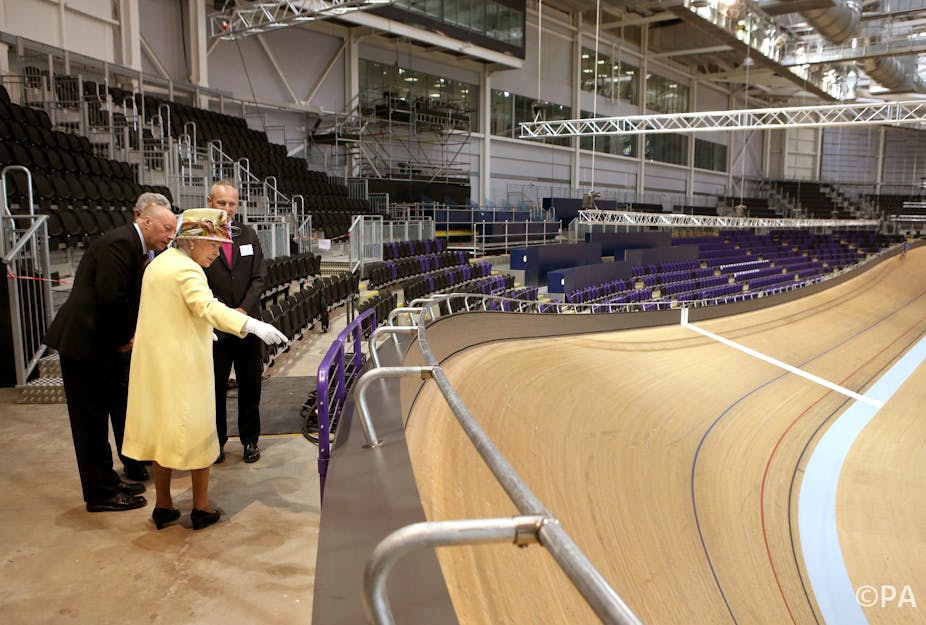On July 23 the Queen will open the 2014 Commonwealth Games in Glasgow. In the process, she will no doubt also fire the starting pistol on the latest round of a favourite British pastime: worrying about the Commonwealth.
As the games provide the organisation with a rare period of public visibility, we can expect a familiar process of soul-searching. While few British political leaders are prepared to dismiss the Commonwealth out of hand, expressions of support are frequently accompanied by anxious speculation as to why the Commonwealth is failing to achieve its supposedly vast, untapped potential.
This tendency to fret is exacerbated by the surprise often expressed by foreign observers at Britain’s apparent neglect of the Commonwealth. Here, after all, is the world’s largest Anglophone organisation, composed of 53 states, the overwhelming majority of which have strong historical ties to the UK and share with it legal and parliamentary traditions. Its head is Queen Elizabeth II, and Britain’s overseas ministry continues to call itself the Foreign and Commonwealth Office. London is home to the headquarters not only of the inter-governmental Commonwealth but also of many of the dozens of civil society bodies accredited to it. So why doesn’t the UK make greater use of this diplomatic resource?
The source of many of Britain’s difficulties is that, however much its supporters might want to deny or forget that history, the Commonwealth has its roots in the British Empire. The Commonwealth Games is a potent reminder of that. The event began in 1930 as the British Empire Games, became the British Empire and Commonwealth Games in 1954, the British Commonwealth Games in 1970, and the Commonwealth Games only as late as 1978.
This long history has consistently inhibited Britain’s capacity to exercise influence via the Commonwealth. It has made the UK cautious about appearing to want to lead, fearing accusations it was seeking to exercise “neo-colonial” control. This has left the organisation heavily dependent on the ability of the Commonwealth Secretary-General of the day to inspire and refresh the organisation, tasks that some incumbents (particularly Sir Shridath “Sonny” Ramphal) have fulfilled noticeably more effectively than others.
And while Britain might value the Commonwealth as a vehicle for promoting democracy, human rights and the rule of law, whenever the governments of its former dependencies face criticism from the organisation over their shortcomings in these areas, they tend to respond with reminders of the sometimes autocratic and brutal nature of British colonial rule. When, ahead of the 2013 Commonwealth heads of government meeting, British prime minister, David Cameron, called for an investigation of human rights abuses in Sri Lanka during the country’s bloody civil war, he was accused by one Sri Lankan minister of acting like a “colonialist”. Resentments about the legacies of colonialism remain sharply felt, raising questions about whether an organisation that emerged from the shell of empire is really a useful “soft power” vehicle for the promotion of British influence.
The same problem applies to the economic sphere. For the past 20 years or so, the organisation’s supporters in London have been busily promoting the idea that Commonwealth networks might help boost British exports. Yet on their recent trade-related tour of India, William Hague and George Osborne noticeably kept references to the Commonwealth to a minimum, no doubt aware that its name opens few doors among the country’s elites and that residual resentment of Britain’s imperial record is never far below the surface. The idea of a “Commonwealth effect” in the area of trade may be just the latest mirage to attach itself to the organisation.
This is not to say the Commonwealth isn’t valued by many of its members, particularly the smaller and weaker ones for which it provides an important international forum in which to put forward their views. In this respect, supporting the Commonwealth has, since the 1960s, been a largely altruistic enterprise on the part of the UK.
Its very lack of substance – which makes it such an unreliable tool for the pursuit of policy objectives – is also probably the secret of its survival. It poses no real threat to the autonomy of its member states. Nor does its meagre budget impose significant costs upon them. The fact that there are few compelling reasons why states might want to leave the organisation may explain why it has already survived many premature obituaries.
So maybe the UK we should find other, more serious things to worry about. When the games take place again in Australia in 2018, the Commonwealth and its many affiliated organisations will almost certainly still be around, getting by as best they can. If necessary we can start worrying about them again then.

